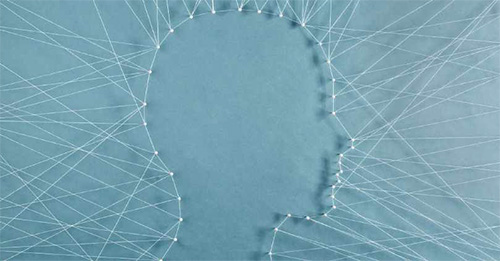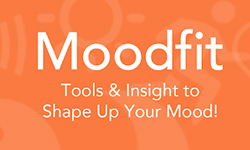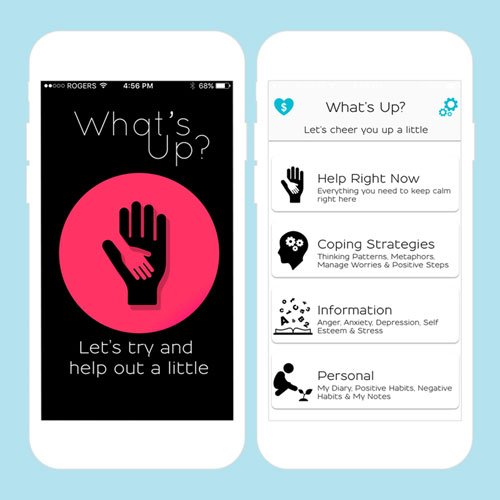Mental Health should not be undermined as it has some real effects on a normal human’s mind.
But, now is the time to talk about the real problem of Mental Disorder, which is taking a toll of human-beings’ minds amid these ongoing secluded phases of lockdowns due to COVID-19. In the absence of no outside visits, no public meetings, theatres, recreational centre as well as no IPL, the steep phase of deadlock has desperately affected the mind of people. Unlike earlier, now people are barred to step outside unless you don’t have some solid reason to wonder on the road. Worsening, the contemporary state of mind, our bonhomie new media is also playing a major role by propagating some negative conspiracy theories in the atmosphere which again is posing a long-term effect on the mind of viewers.
Moving ahead, at a time when social media and free messaging is contributing a lot by disseminating information, they have also derailed the normal logic end of people’s conscience. It has become a trend to spread something viral and most probably fake news amongst our peer groups as well as family members. Now, coming to the ground, with the advent of Corona Virus Pandemic and a series of preventive lockdowns, it has made thousands of companies lay off their workers and if we believe the world economy, there’s has been an unprecedented recession in the market after the GREAT DEPRESSION.
Summing all these hardships, we can see human beings are at a great loss and it’s a great time to talk and care about mental wellbeing amongst other measures.
There has been tremendous growth recorded in the number of cases related to mental health in the last few months across the world, let alone India which happens one of the top-ranking depressed citizens. Notably, India ranks 144 amongst 156 countries in the World Happiness Index. The report simply how desperately, we need to talk about mental health awareness and other related aspects.
Before we dig more into the subject, let’s explore the meaning of mental health and how you can co-relate some of its ailments.
What is Mental Health?
Mental health denotes our emotional, psychological, and social well-being. Mental health affects how we conceive things, think, feel, and take action. Mental health also decides our reaction to different situations like handling stress, making choices and relating things. At every stage of life, it matters a lot take it from our childhood and adolescence to adulthood. Over the course of your life span, if you have ever experienced mental health problems, it might be possible that it has affected your mood, thinking and behavior. Besides, many other factors contribute to mental health problems including:
- Life Experiences like trauma or abuse family History of Mental health problems
- Biological factors such as trauma or abuse
- Some brain Injury
- Prolonged Drug Abuse
- Loneliness and Isolation
- Bullying
- Unemployment or loss in business
- Sexual Life
Early Warning Signs
Don’t know whether you or any of your knowing are going through mental health problems, then read more about the following behaviors that can be an early signs of a problem.
- Eating or sleeping too much or too little
- Pulling away from people and usual activities
- Having low or no energy
- Feeling numb or like nothing matters
- Having unexplained aches and pains
- Feeling helpless or hopeless
- Smoking, drinking, or using drugs more than usual
Now, the bottomline is this our Life is big, and there are lot many surprises waiting at different phases of it. You need to stay positive and stay strong even in an adverse situation as this is only way out. Life situations can be changed if you want to do it! It is essential to take care of yourself and get the most from life by making simple changes to how you live don’t need to require a fortune or take up loads of time.
Now can we start it from today to bring changes to your life? You can see these things to fight against depression and anxiety!
Talk about your feelings.
Talking about what you feel can help you stay in good mental health and deal with times you feel anxious.

Keep yourself active
Regular workout sessions can boost your self-esteem and help you concentrate on yourself, sleep, and feel much better. It is significant in improving your mental health. Exercising daily keeps your brain and your other vital organs healthy.
 Eat healthily and what you want.
Eat healthily and what you want.
Eat healthy food and add variations to your taste. Try cooking nutritious food for yourself and pamper yourself. Eat according to your mood swings, but the condition is healthy!
Drink sensibly
We sometimes drink alcohol to change our mood, or some people drink to deal with their loneliness. Remember, those hallucinations are only temporary. Drinking is not an excellent way to handle your complicated feelings. Drink fresh fruit juices, smoothies, coconut water, and stay the healthy and hydrated whole day.
Keep in touch
Keep in touch with your friends and family, but that’s not possible amid the current situations so, you can also give them a call, drop them a note, or chat with them online instead. Keep the threads of communication open as it’s good for you!
Ask for help
None of us are superhuman accept that, and we all sometimes get tired or puzzled by how we feel and things happening with us!
If things are getting too bad for you and you feel you can’t cope, then ask for help from your family and friends. They may be able to give you practical advice or can be a listening ear.
Take a break
 A change of place is right for your mental health.
A change of place is right for your mental health.
It can be anything, whether a five-minute pause from cleaning your kitchen, a weekend exploring somewhere new, or a half-hour lunch break. A few minutes is enough to de-stress you so, pamper yourself with some ‘me time.
Do something you’re master at
Just do some introspections and find things that you really love to do the most. Like some might love reading, while other doing exercise while other writing poem or short stories. Try these things, they can ease your mind, soul as well as boost up your self-esteem.
Do those things you’re good at it, and achieving something that boosts your self-esteem.
OFF THE BEAT
At a time, when most of you spending time online while chatting to your very first crush or searching for right kind of movies online, you can always try your hand over some amazing apps that can improve your mental health. Believe it or not, these apps are way better than those cranky prime time Hindi News channel debates!!!
Here is the list of some apps:
 Moodfit
Moodfit
Moodfit is a free mental health app whose tools are made to “shape up” your mood. Whether you are looking to know your feelings better or experiencing depression or high levels of stress, this app is designed to help you feel better.
 Sanvello
Sanvello
Sanvello helps people build the life skills they need, anytime, anywhere, in any way they choose.” It gives clinically approved methods for dealing with depression, stress, and anxiety. The tools offered by Sanvello effects lasted even after you stop using the app.
 What’s up
What’s up
What’s up is a free app that practices Cognitive Behavioral Therapy (CBT) and Acceptance Commitment Therapy (ACT) techniques to help you cope with Depression, Stress, and more. Use negative and positive habit tracker to manage your good habits. The app has a “Get Grounded” page that contains over 100 different questions to pinpoint what you’re feeling and the “Thinking Patterns” page that teaches you how to stop negative internal monologues.
 Mindshift
Mindshift
MindShift is the best mental health apps created specifically for teens and young adults combating depression and anxiety. Do not try to avoid anxious feelings. Mind Shift focuses on the importance of changes you think in stress. This app is the cheerleader in your pocket that encourages you to take charge of your life, ride out intense emotions, and face challenging situations.
 Happify
Happify
Need a happy fix? Happify is all about playing different games, and every game is a science-based activity meant to reduce stress, and overcome negative thoughts. These games were developed by positive psychology experts who are familiar with evidence-based cognitive behavioral therapy interventions.
Disclaimer:
The information contained in this article is for educational and informational purposes only and is not intended as a health advice. We would ask you to consult a qualified professional or medical expert to gain additional knowledge before you choose to consume any product or perform any exercise.






